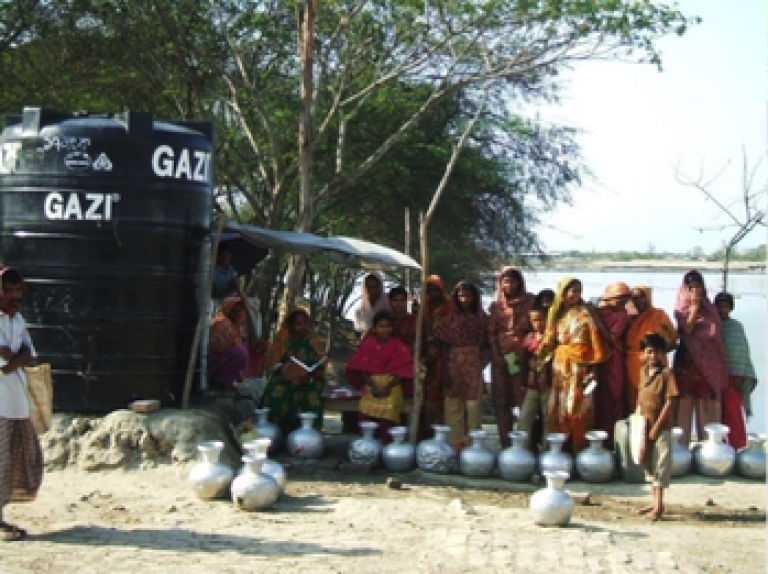Reducing risks to public health from saline water in coastal Bangladesh
16 June 2015
Crisis of fresh drinking water in many coastal communities in Bangladesh (Photo credit: Professor Kazi Matin Ahmed, Dhaka University) Dr.
 Mohammad Shamsudduha (Shams), an IRDR Research Fellow
is collaborating on a research project 'Health impacts of a climate change
adaptation strategy to address drinking-water salinity in coastal Bangladesh'
which has just been funded (£360k) by the Wellcome Trust. The project is led by
the International Centre for Diarrhoeal Disease Research, Bangladesh (ICDDR'B)
and a number of institutions including UCL, Dhaka University, Stanford
University and Emory University are jointly conducting this research in the coastal
region of Bangladesh.
Mohammad Shamsudduha (Shams), an IRDR Research Fellow
is collaborating on a research project 'Health impacts of a climate change
adaptation strategy to address drinking-water salinity in coastal Bangladesh'
which has just been funded (£360k) by the Wellcome Trust. The project is led by
the International Centre for Diarrhoeal Disease Research, Bangladesh (ICDDR'B)
and a number of institutions including UCL, Dhaka University, Stanford
University and Emory University are jointly conducting this research in the coastal
region of Bangladesh.
Saltwater inundation associated with sea-level rise due to global warming increases groundwater salinity in many coastal regions around the world that dependent on shallow hand-pumped tubewells for a source of drinking water. Long-term exposure to saline water increases risk of cardio-vascular and other diseases particularly pre-eclampsia in pregnant women. In coastal Bangladesh where fresh drinking water is generally scarce people, often women, walk a long distance to collect drinking water for families. Managed Aquifer Recharge (MAR) involves collection of rainwater in ponds and its delivery to shallow aquifers by gravity drainage through injection wells. The 'injected' water creates a bubble of 'freshwater' that is accessible via shallow pumping wells, providing year-round, distributed access to a sustainable source of low salinity drinking water. MAR additionally promotes pathogen removal by adsorption and filtration in the sub-surface. A series of successful MAR demonstration installations across south-western Bangladesh, where communities otherwise have little option but to drink brackish groundwater is the basis for this proposal. This project will investigate the health benefits of the MAR - a drinking water strategy in coastal Bangladesh and assess whether these low-cost freshwater sources are resilient to future climate change and sea-level rise associated with global warming. There are also exciting opportunities to scale up this low-cost water-supply option across the other areas in coastal Bangladesh and beyond (e.g. other Asian Mega-Deltas).
 Close
Close






